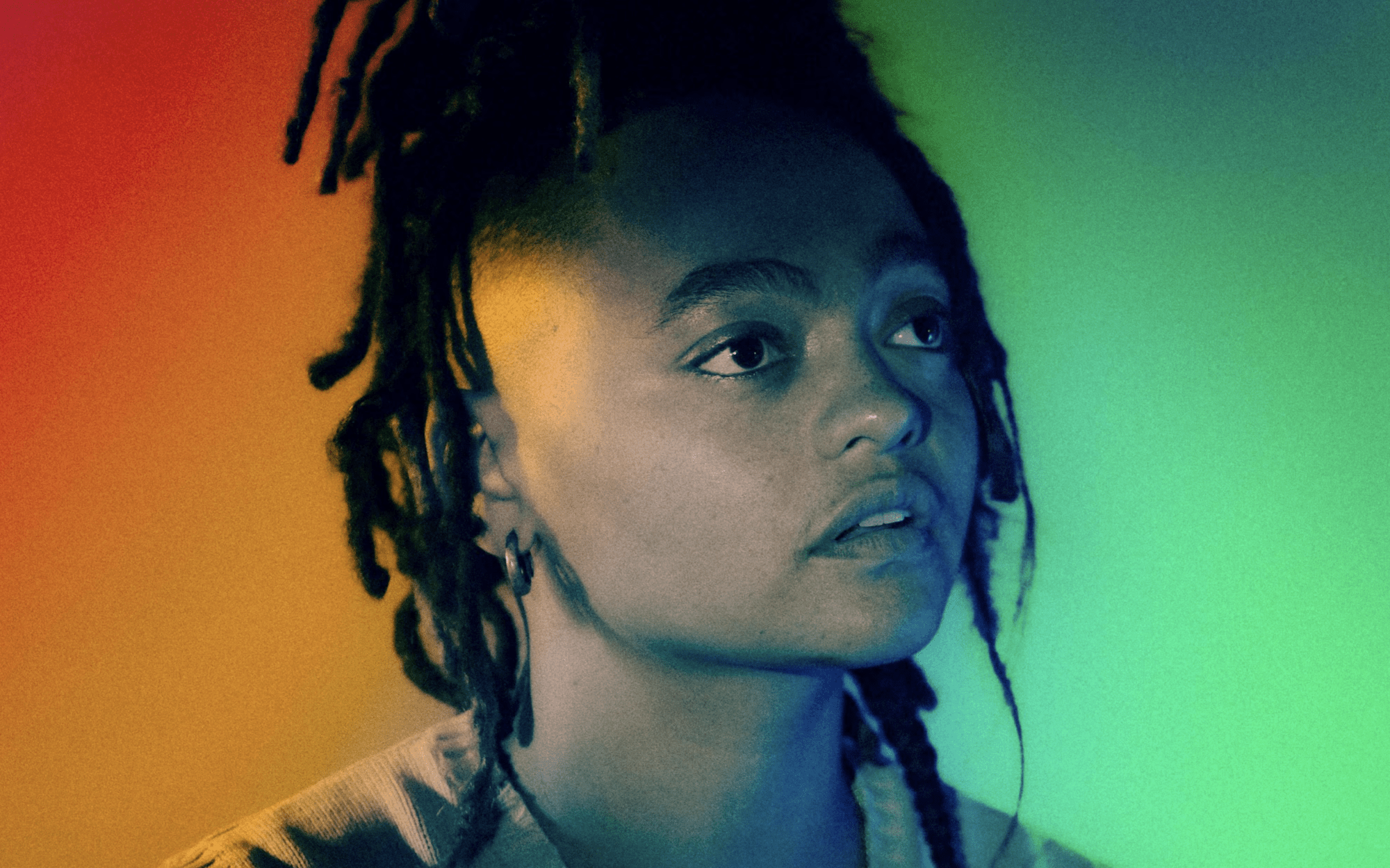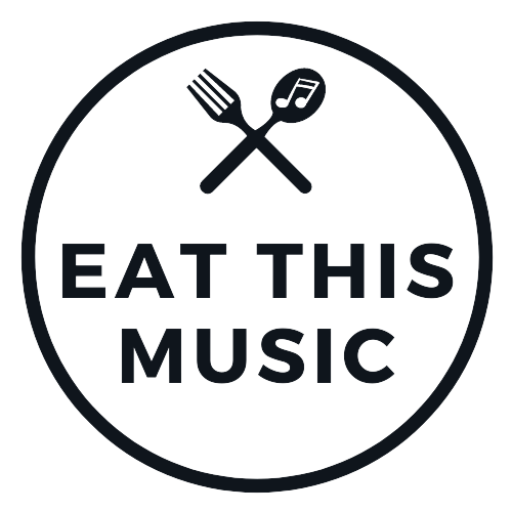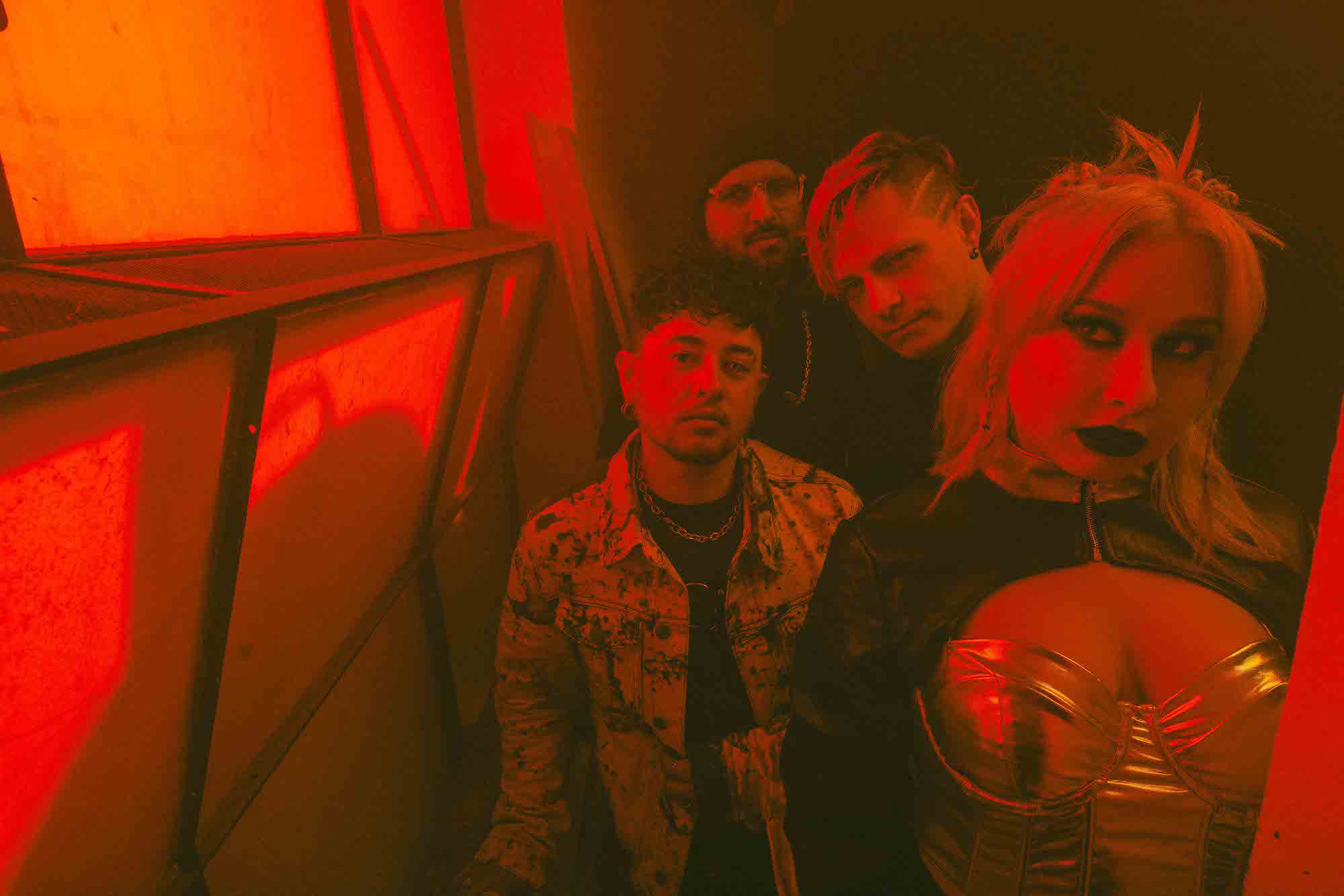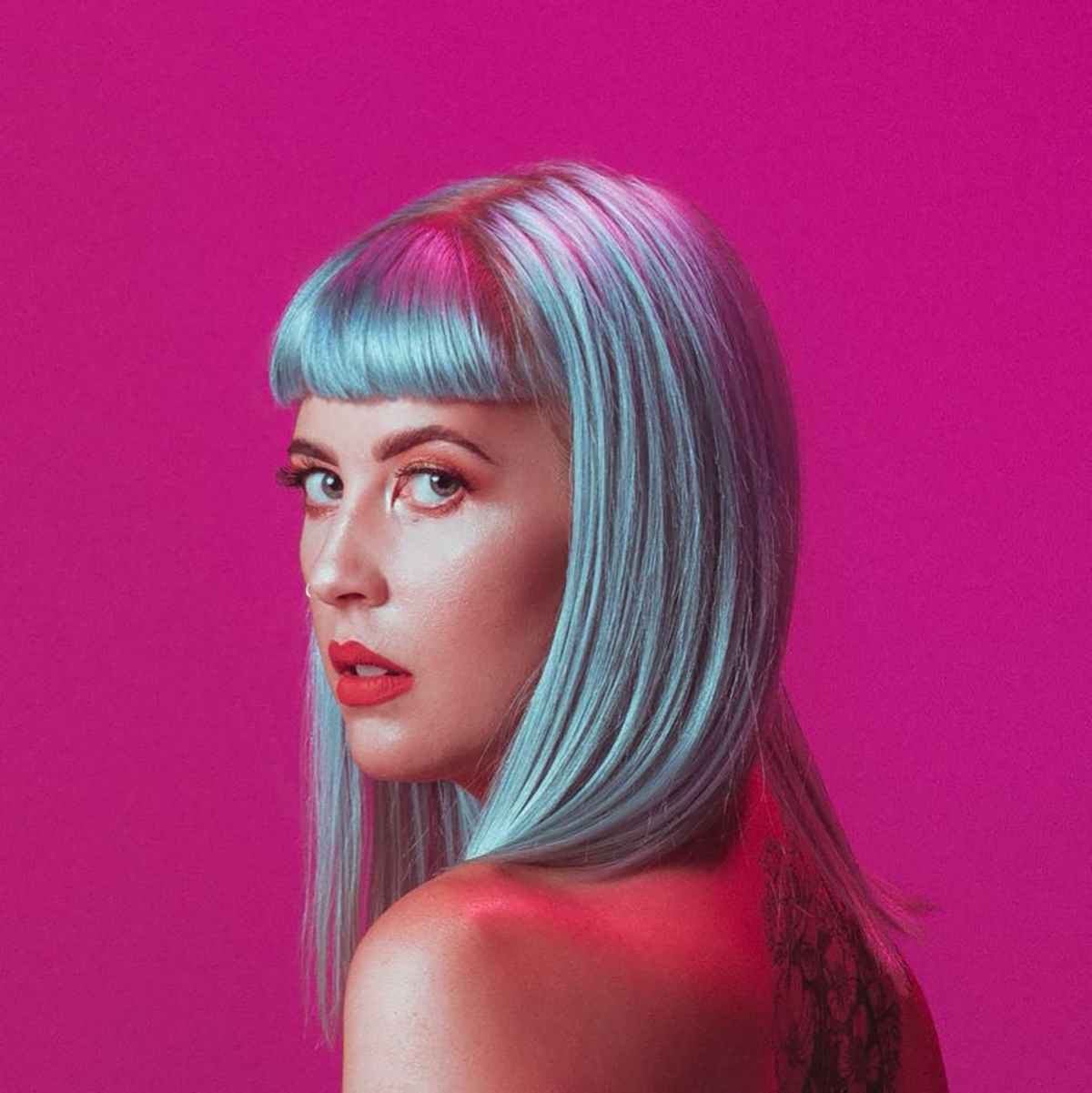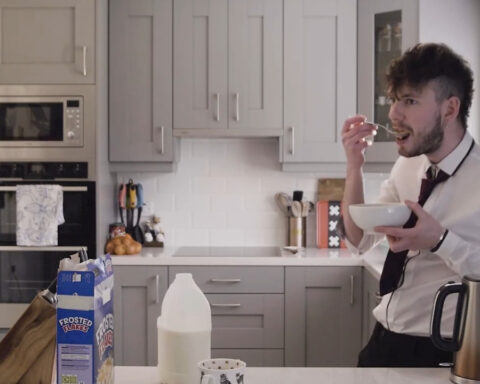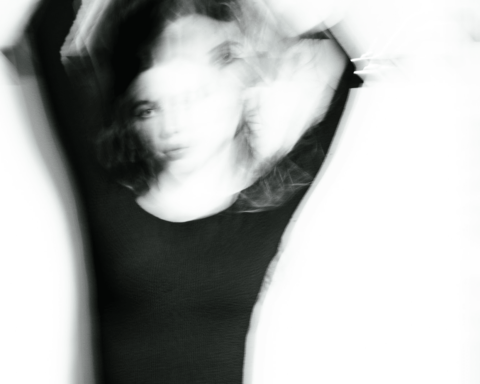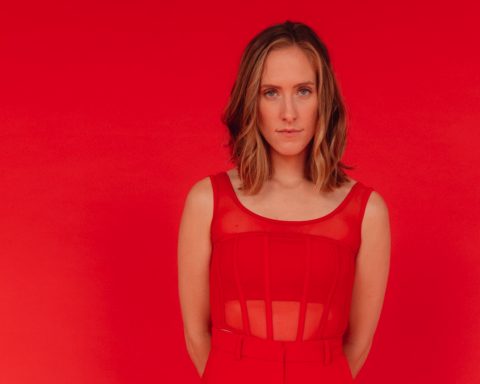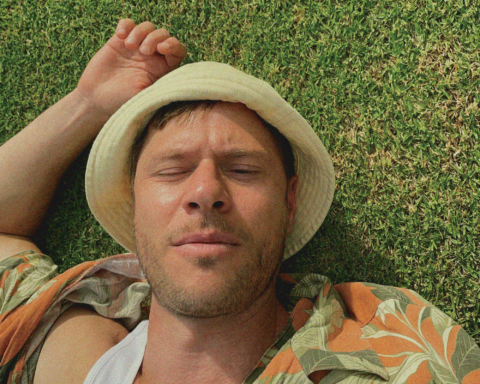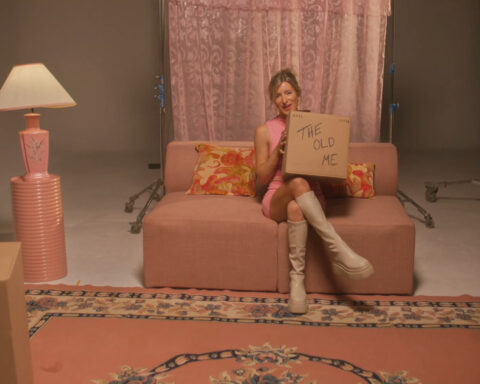Malaika Mfalme’s heartfelt debut album ‘Yasmin’ is one of self-discovery and empowerment. Showcasing nine compositions, ‘Yasmin’ is a tender folk album that also captures the introspections that pay homage to Malaika’s experiences and vulnerabilities.
“I wrote ‘Yasmin’ during a time of immense pain,” Malaika says. “While the world shut its doors and experienced the 2020 lockdowns, I was grieving my late partner. When I began writing it, I didn’t know it would turn into an album. It was my means of coping through writing about grief, loss, and then joy, healing and finally self-acceptance. Now I feel this album can help others move through that kind of pain, removing the taboo and shame western society places on grief.”
Have a listen to Malaika’s debut album before getting to know more about what they have been listen to, and what inspires them.
Who is Malaika Mflame, and how did the namesake come about?
I used my birth name ‘Malaika Green’ as my stage name for nearly a decade. I found profound comfort in my first name and appreciated the inherent beauty of the word Malaika. However, a few years ago, the desire for rebranding led me to contemplate a name change, a process I approached with uncertainty.
My exploration of Swahili, my mother tongue, was pivotal during this transformative period. In this linguistic journey, I decided to christen myself Malaika Mfalme, which translates to ‘Angel King’. This decision coincided with a pivotal moment in my exploration of gender identity, a time when I recognised the immense power of adopting a more masculine surname.
Drawing inspiration from iconic figures such as Biggie, who donned his crown with a distinctive tilt, I was captivated by the regal ideology within the black community. This powerful concept became the cornerstone of my decision to translate such regality into my name and infuse it into the folk music scene.
While acknowledging the abundance of black excellence in R&B, rap, and hip-hop, my focus shifted towards illuminating and contributing to the black excellence inherent in the folk music realm. Like Lil Nas X championed black excellence in country music, I aimed to carve a niche in the folk music scene.
In this creative journey, I drew inspiration from these influential artists, culminating in the name Malaika Mfalme, which now encapsulates the essence of who I am today.
What artists or bands are on your must-listen to list lately and why?
My must-listen list has recently been enriched by diverse artists, each contributing a unique essence to my musical journey. At the pinnacle sits Joy Oladokun, a black lesbian American folk singer-songwriter whose lyrical prowess resonates with a compelling force. I’ve been immersed in the first half of her album, ‘In Defense of My Own Happiness’, captivated by the depth of her storytelling.
While creating my album, Joy’s track ‘Younger Days’ became a wellspring of inspiration for my composition titled ‘Younger’. Her exploration of personal evolution mirrored my themes of self-acceptance, drawing parallels to the soulful music that served as my sanctuary during the challenging years of my youth.
Another luminary on my radar is Shungudzo, a Zimbabwean-American singer whose album ‘I’m Not a Mother, But I Have Children’ exudes profound strength. Its enduring impact keeps me returning to its powerful melodies and evocative narratives. Notably, my musical influences predominantly stem from artists of colour, amplifying voices that resonate deeply with my experiences.
One artist who recently left an indelible mark on me, as witnessed at SXSW, is Adrian Dzvuke, a Zimbabwean maestro. His on-stage manifestation of black joy and comfort was nothing short of powerful. Since that moment, I’ve been immersing myself in his album, captivated by its vibrancy and authenticity.
In this mosaic of musical exploration, these artists have become more than mere sounds; they are conduits of emotion, catalysts for introspection, and companions in my evolving journey through melody and meaning.
When do you go into the recording studio to work on new material, and what are your must-haves?
Lighting is a crucial feature of my creative process; I cannot write a song under fluorescent lighting! When recording my album at Offbeat Collective, my most important tools were hot water for my voice and (as cringe as it is to say) a fidget toy to keep my mind at ease. Recently, when I’ve been working at Cressbrook studio on new ideas, shamefully, what helps is having a few sips of a cigarette. I’ll often leave the studio to go outside with no ideas and come back with 3-5 just by taking a few moments to myself. Maybe I should try some mindful breathing instead.
Which song or songs of yours would you recommend to a first-time listener and why?
If you’re diving into my music for the first time, I’d steer you toward ‘Imagine If You Were Here’, a single I dropped in 2021. This track holds a special place in my musical journey, representing a pivotal moment. In 2019, I faced the loss of my partner, and the echoes of that experience reverberated in 2020 when I penned ‘Imagine If You Were Here’.
I was lying on our bed, a quiet moment interrupted by the illusion of footsteps ascending the stairs. In that fleeting instant, I thought it was Yasmin. Inspired, I grabbed my guitar and birthed the riff that became the song’s backbone. It’s an exploration of imagining the presence of someone you’ve lost, pondering what conversations you’d share and the moments you’d create together.
This track encapsulates the dissociative nature of grief, a journey of continuous change and evolution. It’s a deeply human reflection on wondering about our loved ones after they move on. ‘Imagine If You Were Here’ became the spark that ignited the flame for my entire album.
Rather than adhering to the stereotypical five stages of grief, I delved into the raw, unfiltered emotions – pain, sorrow, love, lust, desire, acceptance, and back to grief and pain.
The album weaves these threads together, incorporating elements like nature, music, love, and the desire for change, forming a narrative that mirrors the complex and multifaceted experience of grief.
So, if you’re looking for a starting point, ‘Imagine If You Were Here’ offers a poignant entry into the tapestry of my musical exploration.
Which song of someone else’s (artist or band) would you have liked to feature on and why?
This incredible song by Shungudzo called ‘It’s a good day (to fight the system)’.
In 2022, Joy Oladokun, one of my favourite other artists, collaborated on that piece, and wow, I think I felt the ultimate FOMO of my life in hearing that song. Not that I didn’t appreciate it. I loved it in all its glory, and the harmonies that Joy brought into it were so rich and full and exactly what you wanted from the song. I love the first line. “I woke up feeling great. The birds are in the trees. They’re singing me a melody La la la la Fuck the police”.
I wish I could have been there; I just thought that that was so powerful, especially around 2020 time, when there was a great consciousness around the Black Lives Matter movement and the atrocities of white supremacy. I would have loved to feature on it and meet these incredible black women who have also shaped my artistry.
What led you to becoming a musician and why do you keep making music?
I started my music journey at the age of five years old. I was involved in each East African choral singing when I was living in Kenya, and then I moved from Sydney to South Africa, then Canberra to Singapore. Music remained consistent over the years of destabilisation and experiencing new things and cultures.
When I was 13 in Canberra, I started taking guitar lessons, and from a young age, I was always curious about writing. Verbally, I struggle to say what I mean, but when I sit down and write it down and exhume my thoughts, this poetry comes out. English and music were my favourite subjects. So, one day, I was having a really tough time. I wrote this poem, picked up my guitar, and wrote a line to it. Then I wrote a melody, and then suddenly, beautifully, the song came. I didn’t think it was that easy. Maybe it just came easily because music has always been my coping mechanism.
Then, I could write about my own experiences and feel relief. Relief is the word I use because the music is such a beautiful expression. I often note that screaming and singing use the same muscles; it’s cathartic and something everyone should do. When I was 14, I began playing my first gigs and getting paid for playing my music. I wanted to continue to create, so when I finished high school in Singapore, I went straight into the music scene and kept writing, creating, and performing. After a while, I decided I wanted to return to Australia, and I’ve been doing it ever since. Music is at the core of who I am, and I don’t believe I could move through my life without it being in some capacity.
